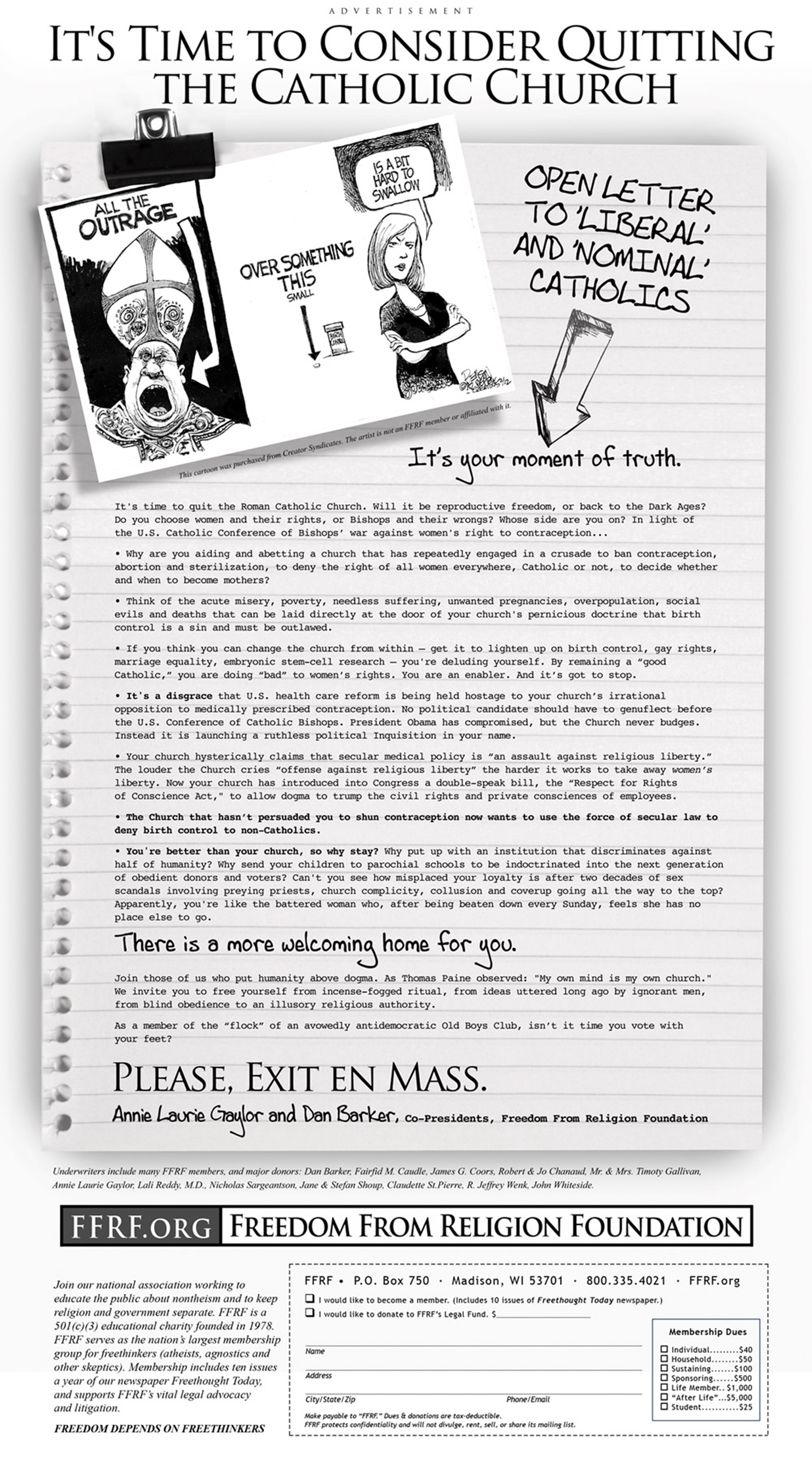Sigmund keeps an eye on the Iona Institute, and he alerted me to its report on a report by a Christian panic-group about “attacks on Christians.” The report on the report is indeed risible.
Christians are the victims in 85pc of ‘hate crimes’ in Europe according to a new report published yesterday.
The report, published by the Observatory on Intolerance and Discrimination against Christians in Europe, a European body established to record instances of anti-Christian bias, provides a series of examples of attacks on Christians in 2011.
Spoiler alert: the “attacks” are not “attacks.”
Among the examples cited in the report were:
- In Spain, students were prevented from attending weekly Mass on a Wednesday because of a protest by secular students until the university could guarantee the safety of the Mass-going students
- In Germany, a mother of 12 children, Irene Wiens, was jailed for 43 days for refusing to enroll her children in a State-run sex education class which she deemed to be too permissive
- In the UK, a Conservative MP, Mike Weatherley, has called for a ban on marriages in Christian churches if they continue to refuse to perform same-sex marriages
- In Jersey, postal workers refused to distribute CD copies of St Mark’s Gospel after deeming it offensive material
- In Spain, a Catholic GP was forced to refer women for abortions by a court in Malaga
- New guidelines in the Netherlands say that doctors who have ethical objections to euthanasia must refer patients to doctors who will carry out euthanasia
It’s a very theocratic mind that sees any of that as “attacks on Christians.” It’s a very theocratic mind that pretends to see any of that as “attacks on Christians” for the purposes of bullying secularists.
Launching the report, Dr Gudrun Kugler, the director of the Observatory, referred to research showing that “85pc of hate crimes in Europe are directed against Christians”…She said that her organisation had also noticed increasing examples of professionial restrictions for Christians: “a restrictive application of freedom of conscience leads to professions such as magistrates, doctors, nurses and midwives as well as pharmacists”.
See? Theocratic. Dr Kugler thinks magistrates, doctors, nurses, midwives, and pharmacists should be able to refuse to do their jobs on religious grounds, while sane people think that people shouldn’t take jobs they’re going to refuse to do on religious grounds.
(This is a syndicated post. Read the original at FreeThoughtBlogs.)



